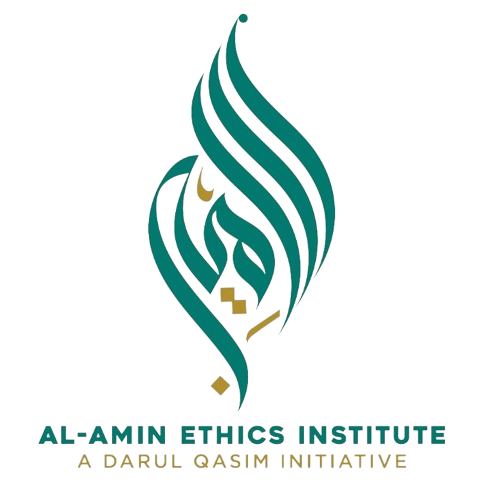The epistemological framework by which Muslims derive truth affirms that the quintessential source of truth, without doubt, is revealed knowledge—knowledge in both word and spirit. As Muslims, when defining anything, we lean upon this source to shed light on how we should perceive any creation, whether tangible or intangible. The command to “Read” invites reflection: through the lens of Revelation, are there insights on how we might define this creation that encompasses all forms of reading? Are humans the only species capable of reading, and is there a distinction between how we read and how other species “read”? What are the different forms of reading in which humans can engage? When Allah SWT commanded the Prophet (peace be upon him) to “read,” what was the deeper meaning of this command? Lastly, as a nephrologist and healthcare professional, what is my purpose in reading, and through what lens should I read to derive the meanings that Allah SWT intends for me? Are there examples in nephrology that exemplify Allah’s intention for us to understand His creation through revealed knowledge? I will explore these questions in the remainder of this essay.
Shaikh Amin explains that the word “Read” encompasses everything that is readable. This definition includes not only human reading but also extends to non-human species. For instance, dogs can read visual cues and be trained to recognize patterns, cats can read human emotions, and dolphins can respond to signs from their trainers. However, the way humans read is a uniquely human experience. At its core, reading involves interpreting the intention (murad) of the one delivering the message (mutakallim).
Humans engage in both abstract and non-abstract reading. Non-abstract reading includes text, symbols, Braille, sign language, maps, or musical notation. Abstract reading can be divided into spiritual and non-spiritual forms. Non-spiritual abstract reading includes interpreting emotions, mathematical equations, graphs, charts, abstract art, DNA sequencing, chemical formulas, molecular structures, the “vibe” in a room, meaning in music or poetry, and QR codes. Spiritual abstract reading, however, connects us with Allah SWT. It includes reflecting on and interpreting the Quran (tafsir), understanding the emotional states of the Prophet (peace be upon him) as transmitted through the Sunnah, contemplating natural phenomena to find Allah’s presence, interpreting events through a takwini (cosmological) lens to understand divine intent, and analyzing dreams through a revelation-based framework. While all forms of reading enable us to grasp the message of the creator of that message, spiritual reading uniquely connects us to Allah and paves the path for salvation (najat).
When the Prophet (peace be upon him) was in the cave, the command came to “Read.” Both the Prophet and Angel Jibril knew that the one being addressed was unlettered (ummi). Tafsir al-Jalalayn offers profound insights into this command. The verb “read” (iqra) in this context has its mafool mutlaq (object) left implicit—a strategy the Quran employs to inspire creativity in interpretation. The mufassireen (exegetes) clarify that “iqra” here refers to initiating a recitation whose content was to be revealed incrementally. This recitation would define the Prophet’s mission and guide his life and teachings. When the Prophet responded, “I cannot read,” this exchange occurred three times, with Jibril squeezing him tighter each time. These squeezes transferred the divine light (noor) from Allah, through Jibril, to strengthen the Prophet’s heart for receiving the heavy words of the Quran. Words so powerful that they could bring a camel to its knees or cause mountains to crumble. This light enabled the Prophet to receive, explain, and transform the world through this message for all time.
All creation unequivocally submits to the will of Allah. This obedience is innate and immutable. In quantum physics, the probability of finding an electron around a proton is governed by precise mathematical equations. Similarly, the “Goldilocks zone” describes the exact position a planet must maintain around a star to allow liquid water to exist—too far, and water freezes; too close, and it vaporizes. This precision sustains life, and any deviation would lead to its extinction. From the smallest particles to astronomical phenomena, all creation categorically obeys the divine command (amr) without deviation. Witnessing this obedience strengthens our conviction (yaqeen) that behind all phenomena lies the Creator. Our role is to read these signs and discover Allah within them. When we achieve this understanding, tawhid (the oneness of Allah SWT) descends from the tongue into the heart, compelling us to emulate the submission of all creation by falling into prostration (sajda).
As a nephrologist, I witness countless physiological processes that mirror the precision and obedience of divine commands. The Kantian categorical imperative, while originally a moral philosophy, can also describe these biological processes—immutable principles that do not deviate under varying circumstances. One example is steady-state homeostasis. Biological processes hover around divinely determined “set points.” For instance, the sodium concentration in the blood is set at 140 mg/dL. When we drink water, sodium levels drop below 140 mg/dL. This is detected by receptors in the brain, triggering mechanisms to increase water clearance by the kidneys and restore balance. Similarly, during fasting, water loss causes sodium levels to rise above 140 mg/dL. The brain detects this and activates mechanisms to retain water, bringing sodium levels back to equilibrium. The same principles apply to potassium, glucose, acid-base balance, phosphorus, and calcium. These immutable set points, shared across all humans and species (makhlooq), point to a singular Creator (Khaaliq).
This abstract reading of human physiology allows us to witness creation obeying Allah’s amr. We pray that internalizing this obedience inspires us to submit to the commands revealed by our master, Muhammad (peace be upon him), and to live lives aligned with the divine will.
Mohammed Ahmed
